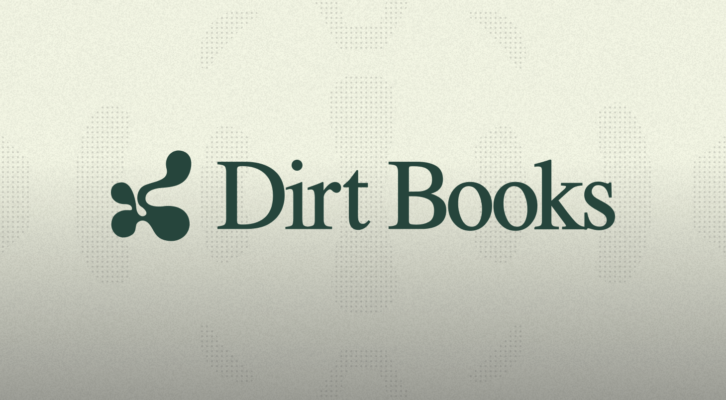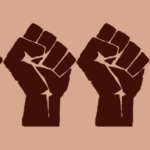Steph Cha is the author of the Juniper Song crime trilogy, and most recently, Your House Will Pay, winner of the Los Angeles Times Book Prize and the California Book Award. She’s also a critic whose work has appeared in the Los Angeles Times, USA Today, and the Los Angeles Review of Books, and the current series editor of the Best American Mystery & Suspense anthology.
What you may not know, however, is that Steph is also an avid dissectologist. So deep is her love for jigsaw puzzles, she actually tackled a 5,000-piece puzzle while under quarantine due to the pandemic. Naturally, that seemed like the perfect place to start our “Shop Talk.”
Steph Cha: Oh, yeah. I love puzzles. Jigsaw puzzles, especially. I just find them really satisfying. I can sit for nine hours with a puzzle and an audio book, and that’s like a perfect day. That particular puzzle was the biggest one I’d ever done. I’d always wanted to do a 5,000 piece jigsaw puzzle. There was just never a great time to do it. But I came off of a job in December 2019. It was like a six-month job, and I was pregnant. So I figured, okay, now’s a good time to do that big-ass jigsaw puzzle. I spent, I think, three weeks on this puzzle. Pretty much around the clock. A 5,000 piece puzzle is not five times as hard as a 1,000-piece puzzle; it’s exponentially harder. This one was of the Sistine Chapel’s ceiling. The puzzle took forever, but the whole process was super satisfying, until I finished it and realized there was one piece missing. I was in denial about that piece being gone. It took about a month before I decided, okay, we don’t have a dining room table, I have to rid of the puzzle. So I put it away, but did it so that if that piece turned up, I wouldn’t have to reassemble the whole thing from scratch. And then, a year after I finished the puzzle, I put on this cardigan I hadn’t worn in a while. I was fishing in my pocket for my car keys, and I just pulled out the missing puzzle piece. This all happened toward the end of the pandemic. I took it as a good omen.
Eli Cranor: That whole story feels like a great metaphor for crafting a novel. You do all this work, you think you’re finally done, but you’re still missing that one piece. How does working a jigsaw puzzle compare to writing a book.
SC: People talk about writing fiction—especially crime fiction, mystery fiction—as putting together these elaborate puzzles. I don’t really approach my work like that, but the actual process of writing a novel is very much like doing a huge jigsaw puzzle. You can’t always see the whole thing at the same time. The more you work, the more it becomes clear. A lot of putting together a jigsaw puzzle is just patience, and looking around for the right pieces. It’s fun work but it’s still work. When you’re working on one area and then you have this other area and you connect those sections together—that’s the most satisfying part of doing jigsaw puzzles for me. And it’s the same way with writing. You see where the work starts to connect. Whether it’s on a plot level or an emotional level, and you just kind of see how you can make the novel tighter and more cohesive. For each of my books there’s been a distinct turning point. Things start to gel, and you realize, Okay, this is going to take more work but at least it’s not going to end up being this stack of pages in a drawer. In that sense, writing a novel is extremely similar to working a puzzle.
EC: When you’re writing, do you have to work in a certain place?
SC: I’ve always written on the couch, actually. Right on the couch with my dogs nearby. And a laptop in my lap. I have two basset hounds. I haven’t worked at a desk since, I don’t know, high school? Yeah. In college I did most of my work from a comfy chair or a bed.
EC: You get an idea that you think might be a book. That initial puzzle piece. What is your first step in writing a book?
SC: I mull over the idea for a bit, but I do open the document pretty fast. Just to kind of jot down some ideas loosely. Find some kind of voice, a way into the story. Identify point of view characters, and then just try to figure out what they sound like.
EC: Are you just doing an outline while you’re writing this early stuff, or is this just straight up random scene construction?
SC: I tend to be a pretty linear writer. With my first three books, I didn’t outline that much, because they were all PI novels. When you write a traditional mystery structure there’s a little bit of a built-in outline already. You know the plot has to resolve toward the end. You know you have the inciting incident, the discovery. You know you’ll have a body at some point. And the scenes are mostly just the PI talking to people. So, yeah, I didn’t feel like I had to outline that much for those books. I didn’t outline Your House Will Pay, either. I wrote like half or maybe two thirds of it without really sitting down and outlining. There was so much meandering. So I stopped and outlined the rest of that book in one day. Having that document gave me so much more confidence in my writing. I was like, What the fuck? This is what I should be doing. Made me wonder why I hadn’t been doing it all along. I don’t know, maybe that only worked because I had figured so much out already? I do know I’m going to try it for my next project. Yeah. I’m going to try to be an outliner. I’m hoping it’ll save me a lot of headache that I frankly just no longer have the patience for. I’m not gonna spend five years writing my next book. I just won’t do it.
EC: How do you structure your writing time? Take me through your ideal workday.
SC: When I’m really doing well, and I’m on a deadline, I wake up between eight and nine. If I get shit done before lunch, I feel pretty productive. I tend to do all my bullshitting in the morning and then in the afternoon start thinking, Oh where did my day go? So if I can get in like a solid two hours of writing done before noon, then that’s great. After I wake up, I do a half an hour of reading and writing Yelp reviews.
EC: Yelp reviews?
SC: That’s where I get my junky habitual writing done, which has been really helpful to me. I’ve been doing it my whole career. I’ve Yelped every restaurant I’ve ever been to. I also Yelped an eye doctor today. It’s just a habit I’ve always had. It’s helpful when I need to kick myself into gear. Just start writing something. I can’t quite define it. I will probably write about this one day. It’s so hard to just sit straight down and start writing. Something about the routine of the Yelp reviews helps. I don’t get fancy with my prose there. I basically use the same sentence structure. I use the same descriptors over and over again. It’s just like a thing that I use to kind of get my fingers moving. You know, like a warmup.
EC: Yeah, that’s super cool. So you’ve got the Yelp reviews, you’re aiming for two hours before lunch, but you said that doesn’t always happen. So what do your afternoons look like?
SC: I listen to audiobooks while I eat lunch. It’s awesome. I love it. And then in the afternoon, I really try to get going. I would say the most writing I do in a single day ever—even when I’m like burning through pages—is four hours. I think I’ve hit five before, but it’s really unusual. I just can’t do it.
EC: What kind of word count are you going for during these four hour segments?
SC: About 1,000 is all I can ever do. I’ve had days that have gone over 1,000, but that’s very unusual. I generally write for keeps. I don’t just write to put just stuff out there. So, yeah, 1000 is about kind of my max. And hopefully, I will keep most of those 1,000 words.
EC: The more I’ve talked with authors, the more I’m starting to think we all aim for a four-hour workday.
SC: When I’m in drafting phase, four hours a day is plenty to keep me going. It’s enough. I don’t feel like I have to push myself to do five or six. The other time in my day is important too. A lot of the reading I do is actual work. I do the Best American Series now. I also do a lot of freelancing. I try to read for pleasure at night, but I still do a little bit during the day. And then there’s just like social media shit. It’s a total waste of time. Actually, no. I don’t even believe that. I think you can definitely overdo it, but I really enjoy Twitter. I don’t enjoy Facebook. I don’t enjoy Instagram as much, so I don’t post there. But because I have an affinity for Twitter—I use Twitter. I know the tweet-to-book-purchase conversion is really low, but it still helps me stay connected with the literary community, with readers, you know?
EC: I get it. There’s a balance, for sure. This has been another recurring theme for this column. Do you set any boundaries for yourself when it comes to social media?
SC: I used to use this app called Freedom. It basically just turns off your WIFI and keeps you from getting onto anything else. But I only had it on my computer. So I just used my phone. I mean, if you want to use the internet, you’re gonna use internet. Here’s how bad of a Twitter addict I am. Sometimes I’m like looking at Twitter on my phone and then I look at it on my computer. It’s reflexive. I’ll exit Twitter on my phone and then like I immediately open it back up as if I wasn’t just on there. I look at it a lot.
EC: I can’t remember who said this. It may not have even been an author. But someone, somewhere, said something about having their best ideas on the toilet. We don’t really have downtime like that anymore, do we?
SC: I’ve had a lot of plot breakthroughs in the shower. That’s literally the only place where I’m not doing or reading something. It’s the only time when my brain shuts off. And that’s sad, because I take a 10 to 15 minute shower once every, what, two or three days? It’s not a lot. I used to think a bunch while I was driving, but I tend to keep the radio on nowadays. I listen to audiobooks too. Audio books have kind of replaced a bunch of my meditative times.
EC: Okay, so now you’re through your drafting process, you’ve put your four hours in each day, and you’ve reached the end. What do you do after that first draft is done?
SC: I take a little bit of a break. I know I’m done when I’m a little bit exhausted with the book. I do as much work as I can possibly do before I ask somebody else to read it. If I can still tell what’s wrong with it, then I should just be working, you know? When I get to the point where I can’t see the flaws for myself anymore, then I bring other people in. I’ll send it to my agent. It’ll take him however long it takes him to read it, and I’ll use that time in between to distance myself from the book and work on other things. That’s the perfect time to do jigsaw puzzles, as like a reward for myself. But I’ll also take freelance assignment stuff. I love that period. So I take however much time it takes my agent to get back to me as kind of a break from the book. Then, by the time I get back to it, I have some fresh, plus notes.
EC: Do you write on a laptop all the way through?
SC: I’ve written on various MacBookie things since the end of college. So yeah, basically my whole writing career. I like the MacBook Air because it’s super portable. I hold it on my lap.
EC: Writing with the laptop in the lap, huh? I’ve never been able to do that.
SC: Yup. Just straight on legs. I always have a blanket. I have a blanket on my legs right now for this call. Even if it’s not cold, I just like having a blanket.
EC: Besides the blanket, do you have anything else that helps get you in the mood to write?
SC: I drink a lot of Diet Coke, and I like food. Before lunch, I look forward to lunch. After lunch, I look forward to dinner. I use meals as milestones. It’s a very sedentary lifestyle. I don’t do much other than just, like, breathing. Eating and drinking are definite pleasures.
EC: So many of the other authors I’ve interviewed have had very regimented workout routines that they claim aid their writing processes. Do you have anything like that?
SC: Nope.
EC: What about music? Do you listen to music while you write, or is it complete silence?
SC: Complete silence. I mean, I also have dogs, and baby. So, you know . . .
EC: How’s baby life changed your writing process?
SC: Completely ruined it. But that’s because I didn’t have childcare for a year. I did edit Best American. So that felt that felt like work. But now that I have full time childcare, the kid doesn’t really impact my workday. It has started earlier. I wake up when he wakes up. I used to write a lot between like five and six in the evening, like the hour before my husband was going to come home from work and discover that I hadn’t gotten shit done. I don’t really get that hour anymore, but honestly I’m pretty free to work during the day since we have the nanny. Turns out, if you pay someone lots of money to watch your kid then it doesn’t have to ruin your professional life.
EC: My first “Shop Talk” was with William Boyle. Bill has two kids. His response to that question about kids changing his writing was that it made his stuff even better. Not like in some philosophical sense, now that he was writing from a parent’s viewpoint. Nothing like that. He was just saying that time became so much more pertinent. Naptimes especially.
SC: Having a kid does make the hours more precious. It’s like when I had a day job, I was extremely efficient. But I haven’t found naptime to be enough time to get anything done. By the time I get all the other stuff clear enough to work, he’s about to wake up. This is something that my husband doesn’t deal with. There’s just so much that falls on moms in a lot of marriages. There’s always something that that’s going take an hour here, an hour there, nipping away these big parts of your day. Everything like that falls on me. I think in most heterosexual marriages that stuff falls on the woman, and that kind of nipping really adds up.
EC: So you fight and you scrounge and you completely restructure your day just so you can write. That’s what this whole column’s about. How people get the work done, but I’ve been thinking more about this lately, and now I want to start asking all my “Shop Talk” authors why. Why do you write, Steph?
SC: I started writing because I was always a big reader. I just loved reading. When I was a kid, I think that’s like what I would’ve wanted to do when I grew up, except I didn’t know anyone who did it. So I started writing because I wanted to read a certain kind of book and I couldn’t find it. I wasn’t even thinking that I’d be published. When I first started writing, I was at this very transitional period in my life. All I’d done for basically my whole life was school. But I was about to be out of law school, and I had a summer job lined up at a law firm. I went there and hated it. I hated the place. I hated the people, and I thought, Okay, what will my life after school look like? I knew I didn’t want to work at that place, or anywhere like it. So that’s when I started writing. So, yeah, that’s like the selfish reason I write. But as far as what good I’m doing for the world? I mean, I do write social crime fiction. I write books that try to tell the truth about the place I live through like an interesting story. I care very deeply about the things I write about. But am I doing the most good for society? Probably not. That is not even the primary purpose of my work. My hope is that it at least doesn’t make the world a worse place. Listen, with my particular skill set, the only thing I’m really able to do is write books. I’m serious. There’s nothing else I can do. It’s not just that I’m good at writing—I’m not good at anything else. I’m not organized. I mean, I went to law school, but I don’t think I would’ve made a particularly good lawyer. This is just the thing that suits me.

















